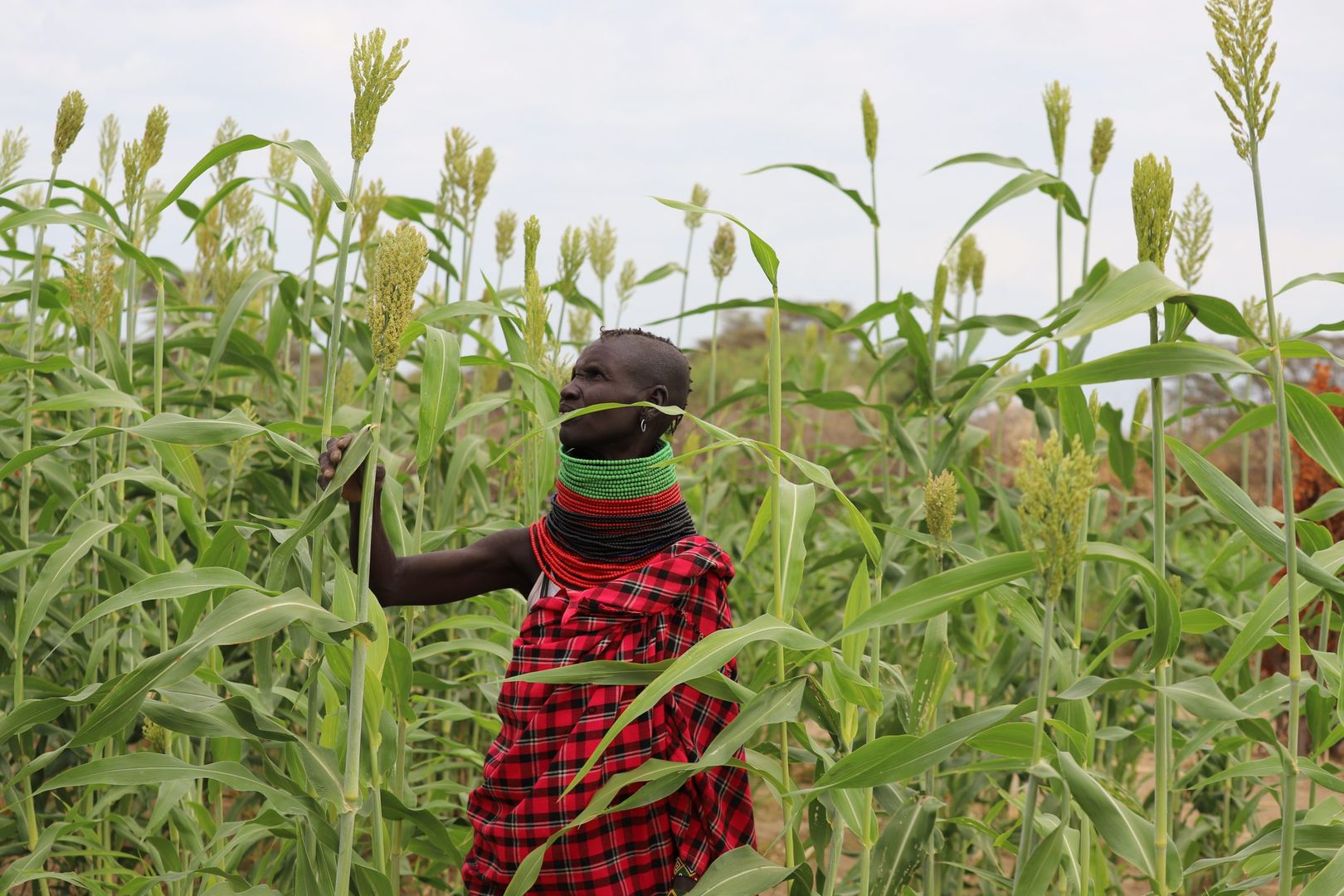About the Inuana Project
With the support from Danida, the ‘Inuana’ Project is helping parents and caregivers to actively support their children’s education in Turkana County. Together with our partner, Sustainable Approaches for Community Empowerment (SAPCONE), DCA supports household capacity in Turkana to maintain and improve income, assets, and food security in the face of outside stresses and shocks. Inuana means ‘lift each other up’ in Swahili, and this approach is enabling communities living in an area impacted by multiple climate-related challenges to do just that. The project started in 2021 and is going through to July 2024.
Turkana county is one of the most food insecure counties in Kenya. Poor soils and lack of enough rainfall are some of the causes exacerbating food insecurity. This translates to high levels of poverty making households struggle to afford basic commodities and services.
DCA and partner are doing this by training farmers on climate change, crop production, agroecology, marketing, and providing farm inputs. The project has onboarded 600 men and women, from 30 farming groups in Kerio, Kangatosa, and Katiilia wards, whose main livelihoods are livestock and small-scale rain-fed agriculture.
SAPCONE brought in agricultural trainers to train farmers on climate smart techniques of agriculture. Initially, all the farmers in the village relied on rain-fed agriculture and when the rains fail, then there would be no harvest. Each of them used to farm in his or her own farm before the project but they experienced challenges impacting production. Under the project, farmers were supported with water tanks, pipes and drip system of irrigation, and inputs including seeds, fertilizers, and pesticides.
A food basket in the middle of the desert
As you enter the farm, you are welcomed by a cool breeze emanating from the green and healthy sorghum plants, dancing to the tunes played by the wind. One would not believe that this is still the ever arid and hot Turkana County with overbearing heat, owing to the success clearly visible on the farms.
The farms are full of life as all members of the farming group are always ever-present at the farm as they share duties in the farm. The farms were started in September 2023 and has 10 – 15 members. The model farms belong to one of the members or a community member, and this is where all the training is conducted.
They have planted a variety of crops including watermelon, spinach, kales, tomatoes, sorghum, onions, maize and cow peas. This is different from what they used to plant as they always plant one type of crop at a time. After four months, they had already started harvesting and supplying vegetables to their villages. Before this, one will have to travel to a very far shopping centre to buy vegetables. Through selling of their produce, the farmers use the money to buy more farm inputs i.e., pesticides and save the rest.
Alice Asuguru, a farmer in Naipa farm of Kangatosa ward, last planted during the short rains in 2022 and rains failed when her maize had just statered to flower. Owing to this, she could not harvest anything. She realized the difference that a drip system can make.
Through the project I have learnt very basic, yet important things about farming like spacing of crops. I now know that land preparation and crop spacing are crucial to a better harvest. Having a drip system is very convenient because you can farm at any time if there is water in the borehole. It uses less water, but the crops are always healthy and very productive.”Alice Asuguru.



Blooming under the hot sun
At Kerio ward of Turkana County, where the 350-kilometre-long Kerio river ends its arduous journey to Lake Turkana, sits Nadoto farm on the fertile shores of Lake Turkana. The sun is unbearably hot, but the crops seemed not to feel the heat as they are consistently watered.

Nadoto farmers group is one of the groups formed where farmers benefitted from trainings such as climate change, land preparation and land use, climate smart techniques of farming and preparation of compost manure. In addition to the trainings, DCA also supplied the farmers group with a fully equipped drip irrigation system, a water tank, farm inputs i.e., seeds, fertilizers, and pesticides. In the 2-acre model farm, variety of crops are grown i.e., watermelon, cowpeas, onions, tomatoes, spinach and kales.
I used to plant sorghum using broadcasting method even without preparing the land. It would always result to failure. Since I went to training, I was taught land preparation, crop spacing and different ways of planting different crops. We were also taught to practice crop rotation and inter-cropping to increase nutrients in the soil and to control pests.”Loolel Loleny.




The future
The members dream of replicating what they have learnt in the project in their individual farms after the project. They yearn to act as change agents in their community of farmers to make sure that positive change is felt in the village and together overcome food insecurity. A desert can be transformed to a food basket.
About the Donor
Danish International Development Agency (Danida) is the brand used by the Ministry of Foreign Affairs of Denmark when it provides humanitarian aid and development assistance to other countries, with focus on developing countries. Read more here
About SAPCONE
SAPCONE-Sustainable Approaches For Community Empowerment was founded in 2006 and registered with the Department of Social Services and Development as a Community based organization that is mandated to spearhead socio-economic self-reliance as well as transformative sustainable development agenda. Read more here

